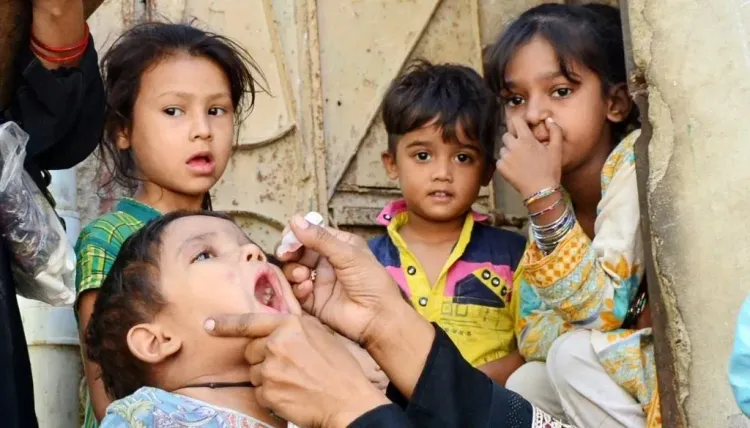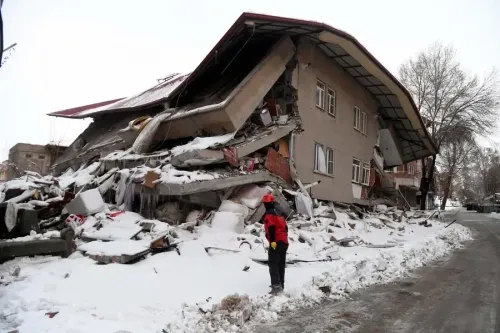Is Wild Poliovirus Detected in Sewage Samples from Seven Districts in Pakistan?

Synopsis
Key Takeaways
- Detection of WPV1 in sewage samples from seven districts.
- Urgent need for vaccination to protect children.
- Over 45 million children vaccinated in 2025.
- Health officials emphasize repeated vaccination as key.
- Global efforts continue to eradicate polio worldwide.
Islamabad, June 21 (NationPress) The National Institute of Health (NIH) has reported the presence of wild poliovirus type 1 (WPV1) in environmental samples from seven districts throughout Pakistan. This alarming discovery was made public in a statement issued on Saturday.
According to the Regional Reference Laboratory for Polio Eradication at the NIH in Islamabad, these samples were gathered between May 8 and May 23 as part of the nation's ongoing environmental surveillance efforts.
The positive sewage samples were identified in Gwadar and Quetta in the southwest Balochistan province, Rawalpindi in eastern Punjab, as well as South Waziristan Upper and South Waziristan Lower in the northwest Khyber Pakhtunkhwa province, and Larkana and Mirpur Khas in southern Sindh province.
In contrast, samples from Lahore in Punjab and Pishin in Balochistan tested negative, the report detailed.
The Pakistan Polio Eradication Programme has implemented three nationwide immunization campaigns in 2025, successfully reaching over 45 million children under five years old with the help of more than 400,000 frontline workers, as reported by health officials.
Since September 2024, the programme has enforced a stringent vaccination strategy, resulting in a notable decrease in polio cases and positive environmental samples across the country, according to the Xinhua news agency.
This year, Pakistan has recorded 12 new poliovirus cases as of 2025, according to the programme.
Health authorities are urging all parents and caregivers to ensure that their children receive polio drops during each campaign, stressing that repeated vaccinations are essential for safeguarding children against this debilitating disease.
Wild poliovirus type 1 (WPV1) is the only naturally occurring strain of poliovirus still prevalent worldwide. It is a highly contagious virus that spreads through the fecal-oral route, mainly impacting children under five and can lead to paralysis. Although there is no cure, vaccination with the polio vaccine can effectively prevent the disease. WPV1 remains endemic in Afghanistan and Pakistan, with the WHO noting a recent outbreak in southeastern Africa.
The Global Polio Eradication Initiative (GPEI) has been dedicated to eradicating polio since 1988, achieving a remarkable reduction of over 99.99 percent in the number of cases.










